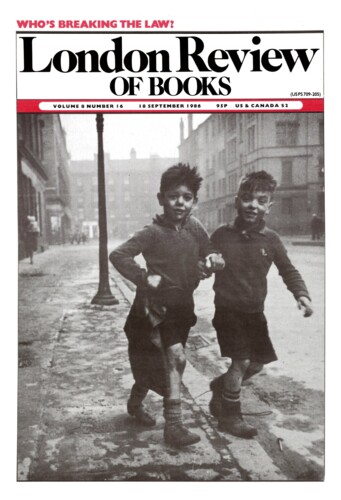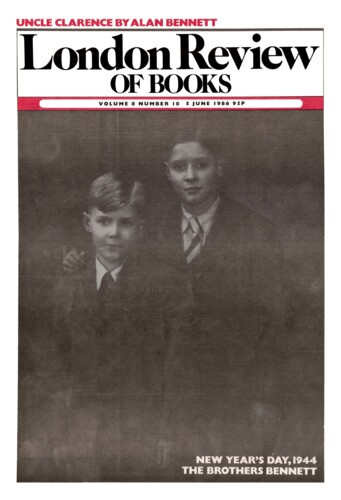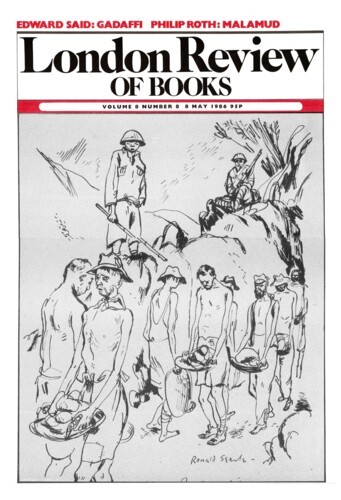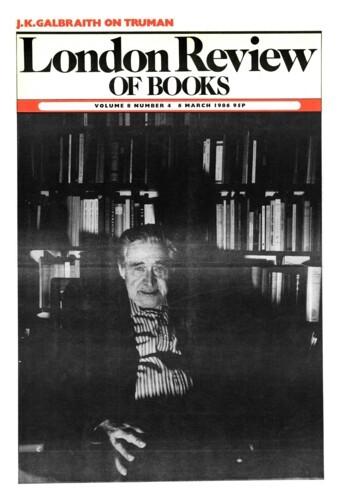Night-Flights
D.A.N. Jones, 18 September 1986
There is an old belief still prevalent in West Africa that many women send forth their souls on night-flights while their bodies are peacefully sleeping: they meet other women’s souls, their okra or sunsum, on the tops of banana trees, where they work magic. The Ghanaian novelist, B. Kojo Laing, makes use of this theory in his story of modern Accra, Search Sweet Country. It might be tempting to treat his novel as an example of ‘magical realism’, in the Latin American mode, but it is too realistic for that: people really believe in such things. Kojo Laing tells of night-flights in a disconcertingly unsurprised way. He was educated in Scotland, where witches like Stevenson’s Thrawn Janet used to follow the Black Man, but he does not follow the Scottish tradition in telling eerie tales. The Scots narrators are always awed by the strangeness of their story, craftily persuading sceptical readers of its truth. Kojo Laing is matter-of-fact, as if his story was not eerie at all.





